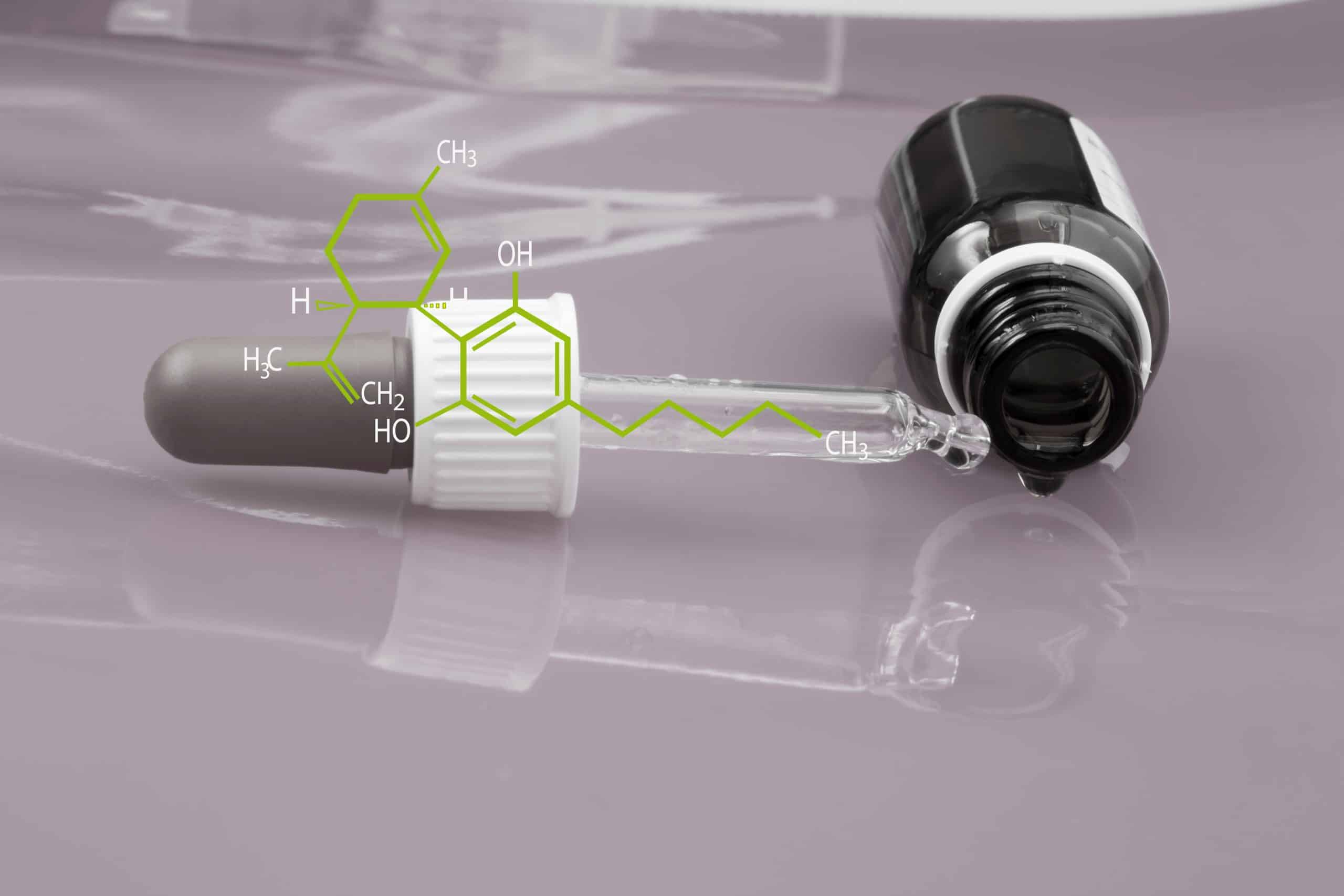Move over, coconut oil: It's time to share the spotlight with CBD. Now that CBD products are legal in states across the nation, you may have noticed how quickly acceptance of this once-controversial substance has spread. Many stores proudly display signs stating they sell CBD oil or capsules, and social media is filled with testimonials detailing how CBD helps people manage everything from anxiety to chronic pain. Tools for cbd products like a pocket size wooden hemp grinder, are also displayed from a cannabis dispensary. Some medical providers even sell CBD products to patients seeking a nonsurgical approach to pain relief.
But is CBD really worth the hype?
In many situations, yes, especially if you're looking for a natural pain management solution. We've compiled seven benefits of using CBD for pain management below so you can check here and decide if cannabidiol extract is right for you.
1. CBD Comes in Many Forms
Hate swallowing pills or capsules? Many people take CBD orally, but that's not your only option. You can also try tinctures or oils, vape CBD, gobble down edibles (like gummies from Westword.com), or massage CBD-infused lotion into your skin. Let's do a brief rundown of each method below:
CBD Pills and Capsules
Pills and capsules are typically filled with a liquid version of CBD combined with a carrier oil, such as coconut oil. Depending on your digestive system, you can take CBD capsules with or without food. However, there may be a delay in symptom relief, as you have to wait until your body breaks down the capsule and distributes its contents.
You can get CBD pills without a prescription, but the FDA has approved a cannabidiol prescription drug called Epidiolex for epilepsy patients.
Oils and Tinctures
People who dislike pills often appreciate the convenience of tinctures that you ingest. Simply place a drop of the tincture under your tongue and wait for pain relief.
Oils are sometimes edible, but they're generally designed for topical use. When using CBD for pain management, apply the oil where you have aches, burning, tingling, or stiffness.
Lotions and Creams
CBD lotions and creams are made for topical use. You can massage these products directly into your skin for fast-acting pain relief as well as skin-moisturizing benefits.
Gummies and Other Edibles
CBD edibles often come in candy form. You can find gummy bears, fruit chews, caramels, and chocolate with CBD on the ingredient list. Some people make their own edibles by adding food-grade CBD oil to brownies or cookie dough.
CBD for Vaping
Vaporized CBD oil goes straight from your lungs to your bloodstream, providing fast relief from painful symptoms. Be careful, though -- vaping anything, even natural CBD oil, may still damage your health.
With so many options available, from pills to vaping, it's easy to find a way to incorporate CBD into your pain management routine. If you aren't sure which form of CBD is right for you, experiment with a few different types to figure out which offers the most benefits.
2. Different Types of CBD Extracts Are Available
Shopping for CBD products can feel overwhelming, and many people wonder: Are all these products the same, just with different labels? The answer is no, they're not -- and we'll explain why.
Check out the label or ingredient list on the CBD product you want to try. You may notice terms such as full-spectrum, broad-spectrum, or isolate. These words describe the type of CBD inside.
Let's quickly break down each term to help you choose CBD for pain management or other purposes:
Hemp Seed Oil
Despite common misconceptions, hemp seed oil is not the same as CBD oil, nor does it contain any phytocannabinoids. Hemp seed oil is derived from hemp seeds during a cold-press process. Hemp can be a part of a heart-healthy diet but look for another product if you actually want CBD.
CBD Isolate
As its name suggests, CBD isolate contains CBD. However, you won't find any other phytocannabinoids in this simple compound.
Broad Spectrum
Broad-spectrum CBD products are a step up from isolates. They contain all of a plant's phytocannabinoids, but they don't have any THC (the drug found in marijuana associated with causing a “high”).
Full Spectrum
Full-spectrum CBD products offer numerous nutritional benefits for your body. If you buy a full-spectrum product, you're getting something derived from the entire cannabis plant, including the parts with THC, CBC, and CBG. These are phytocannabinoids that help reduce pain signals in the brain.
Nano CBD
Nano CBD is made from shrunken molecules that are water soluble. It's ideal for people who need an easy-to-digest CBD product that delivers nearly immediate symptom relief.
The form of CBD you choose depends on what you plan to treat. If you want to enhance your overall well-being, choose a full-spectrum or broad-spectrum product. Topical isolates may work well for patients who just want to manage pain in a specific location.
3. CBD Helps Reduce Joint Inflammation
If you've read some of our other blog posts, you may remember that inflammation is the culprit behind numerous symptoms and conditions we treat at Northeast Spine and Sports Medicine.
Wondering what that has to do with CBD?
Well, research indicates that CBD helps reduce inflammation in the joints, particularly when osteoarthritis is involved. The 2017 study found that not only does CBD help reduce pain, it also helps prevent nerve damage when administered via injections. Thwarting the development of nerve damage in arthritic patients may help stop the condition from worsening.
4. CBD Has Antifungal and Antibacterial Properties
If you've got slow-healing wounds from diabetes or other conditions, CBD may help enhance your recovery. CBD has antifungal and antibacterial properties, which can speed up your recovery time and also fend off infections.
When using CBD for wounds or blisters, you may want to apply it directly to the affected area rather than ingesting it. This helps create a protective barrier around the injured skin and ensure that nutrients are distributed where they're needed most.
5. CBD Mimics the Effects of Prescription Pain Relief Medications
Like prescription medicines, cannabis works by activating receptors in your brain. When this happens, your receptors are basically saying, "Hey body, your pain is gone!" even if an injury or ailment still exists.
CBD isn't just a brain-receptor manipulator, though. It has anti-inflammatory properties, so it addresses symptoms directly at their source rather than just masking your pain. Yes, you may experience relief before you're fully healed, but CBD also helps your body repair itself.
6. CBD Treats Numerous Health Conditions and Concerns
Trouble sleeping? Stressed at work? Battling back pain?
CBD can help with all of these issues. You can also use CBD for relief from arthritis pain, foot pain, scratches and scrapes, headaches, and some digestive problems. CBD may even enhance your existing pain management treatments for sciatica and other hard-to-treat conditions.
Conflicting information is available about the benefits of CBD tinctures and capsules for cancer treatment. Speak to a medical provider before you replace your current treatments with CBD products.
7. CBD Is Easily Attainable
Now that many forms of CBD are legal options for pain management, it's easy to find the types and formulas you need. You can order CBD online, get it from a health food store, find it at medical offices, or even get it at some pharmacies — without a prescription, of course.
CBD is often affordable when compared with other options for pain management, such as prescription pain pills and surgery, and no appointment is required before you purchase CBD.
Things to Consider Before Taking CBD for Pain Management
As we've described above, there are numerous benefits associated with using CBD for pain management, from its anti-inflammatory properties to its widespread availability. However, CBD is not for everyone, and there is a chance that you may experience side effects when using cannabidiol extracts.
Minor side effects include:
- Fatigue
- Nausea or upset stomach
- Irritability
- Dry mouth
- Reduced appetite
Let your doctor know if you plan to combine CBD with prescription drugs, as there is a possibility for a negative interaction. CBD may interfere with your bloodstream if you take a blood thinner such as Coumadin, and it can also enhance the strength of some psychiatric medications — which isn't necessarily a good thing.
At Northeast Spine and Sports Medicine, we understand the popularity of CBD for pain management, but we also realize cannabidiol extracts may not be an ideal choice for you. Give us a call to learn more about our other pain management services, whether you have a misaligned spine, aching knees, or activity-impacting joint pain.


